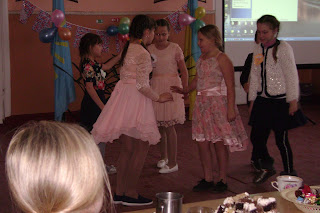Present,
Past, Future Indefinite
Питальна форма
Ніколи ти не забувай:
Допоміжне дієслово
Завжди спереду вставляй!
Do, does – для
сьогодення,
Shall, will – майбутній
час,
Did – для минулого,
Це правило – для вас!
Do you know? Does he work?
Did they go? Shall we talk?
Present
Simple
Does
у дружбі з одниною,
Do – лише із
множиною,
Слово I тут не вагалось
І до Do теж приєдналось.
Заперечуй і питай –
Do і Does завжди вживай!
Forms
of the verb to be
Слово Be трьох
діток має:
Am,
Is, Are – їх кожен знає!
Як щось роблять чи співають,
Різних друзів обирають.
Am співає лише з I,
Це дует на весь наш край!
Is – лише із He, She, It,
Пише нам музичний хіт.
Слово Are співає в
хорі
І збирає всіх до кола.
We,
You, They кличе з собою,
Адже дружить з множиною!
З Є у нас іменник «хмара»,
А Cloud називається.
П Є у нас прикметник «хмарний»,
А Cloudy читається.
М Де прикметник ми взяли?
‘ Букву у лиш додали.
Я Додавати до слова букви
Т Ми вже з вами звикли.
А Маємо прикметник quick
Л І прислівник quickly.
К quickly – швидко.
А quick – швидкий.
Цей
секрет у нас простий.
Present,
Past, Future Indefinite
Питальна форма
Ніколи ти не забувай:
Допоміжне дієслово
Завжди спереду вставляй!
Do, does – для сьогодення,
Shall, will – майбутній час,
Did – для минулого,
Це правило – для вас!
Do you know? Does he work?
Did they go? Shall we talk?
Plural
and Nouns
Гуси бігли за мишами, a
goose - geese
Що з гостренькими зубами, a man - men
А за гусками – бики. a mouse - mice
Потім ще й чоловіки! a
child - children
А всі діти
і жінки a
tooth - teeth
Все ногами тупотіли, a woman - women
Охали та й гомоніли! an ox - oxen
Часом, то були не ви? a foot – feet
Present
Simple
Does у дружбі з одниною,
Do – лише із
множиною,
Слово I тут не вагалось
І до Do теж приєдналось.
Заперечуй і питай –
Do і Does завжди
вживай!
Future Simple
Що чекає завтра нас?
Пілемо в наступний клас?
До чаклунки ти не йди –
Shall і Will лиш запроси!
Одразу ж You, They, He, She, It.
Will притягнуть як магніт!
Потім We і I прийдуть
Shall з собою заберуть!
Prepositions
Щойно зірка запалала
І прийменники зібрала.
Раптом пес ввійшов – злякались!
Хто куди усі ховались!
Місіс Under – враз під стіл,
Містер In –
в одну з картин,
On – на мій магнітофон,
А Between – поміж гардин!
Міс Above весь час кричала,
Потім вище всіх стрибала!
Пес не вкусить, кожен знає,
Якщо вивчив ці слова.
Forms
of the verb to be
Слово Be трьох
діток має:
Am,
Is, Are – їх кожен знає!
Як щось роблять чи співають,
Різних друзів обирають.
Am співає лише з I,
Це дует на весь наш край!
Is – лише із He, She, It,
Пише нам музичний хіт.
Слово Are співає в
хорі
І збирає всіх до кола.
We,
You, They кличе з собою,
Адже дружить з множиною!




























